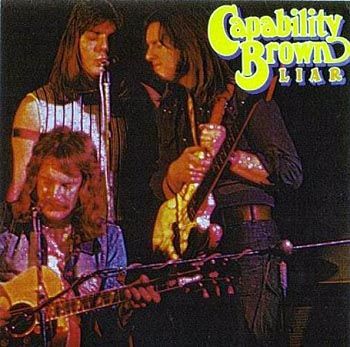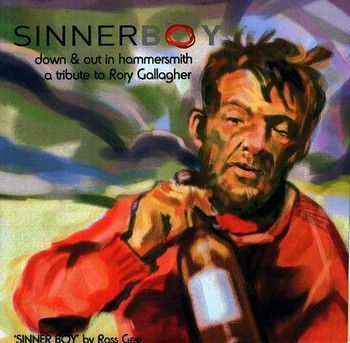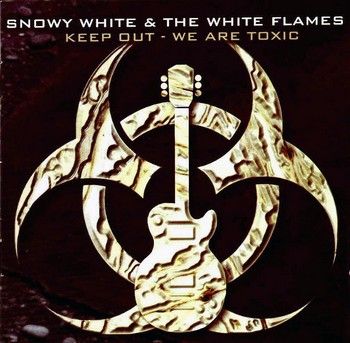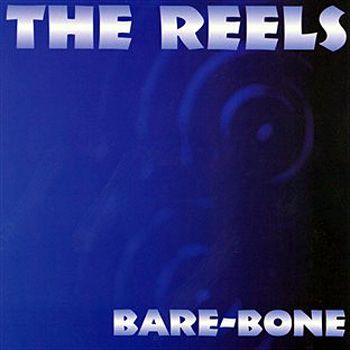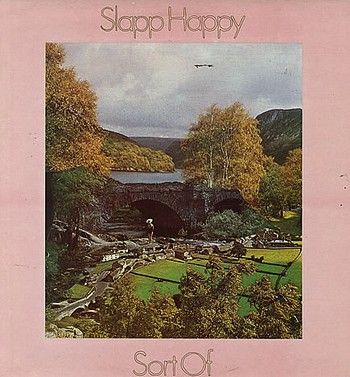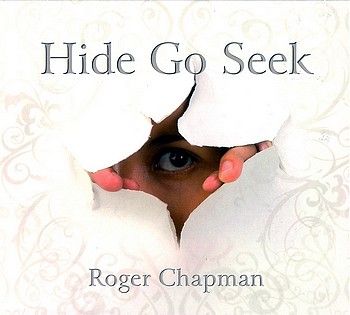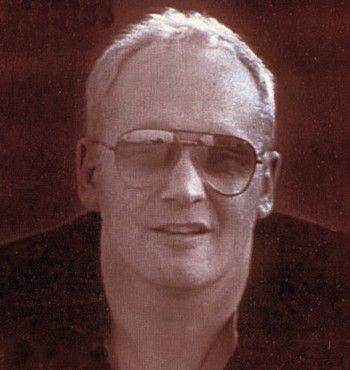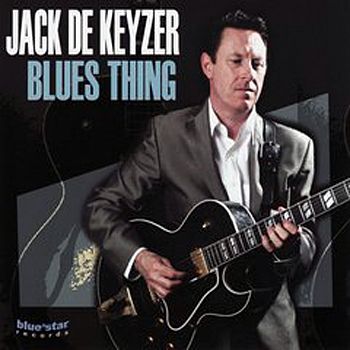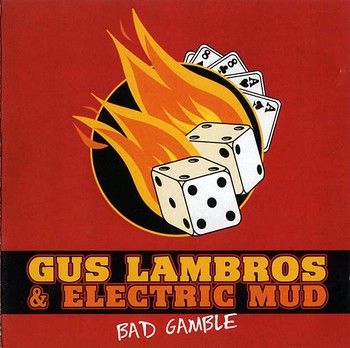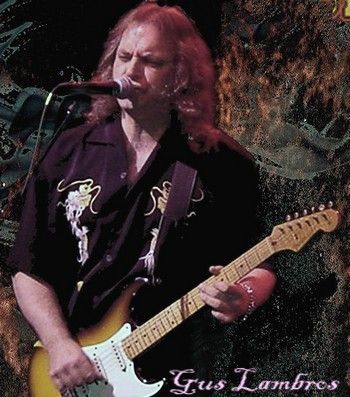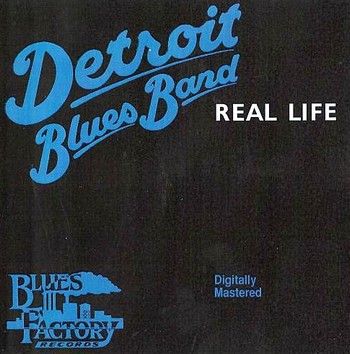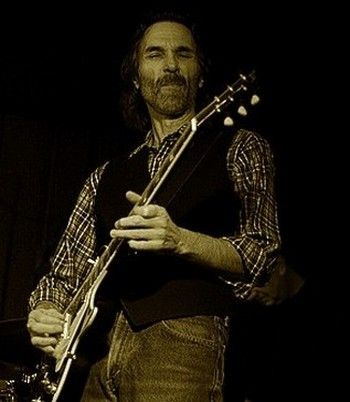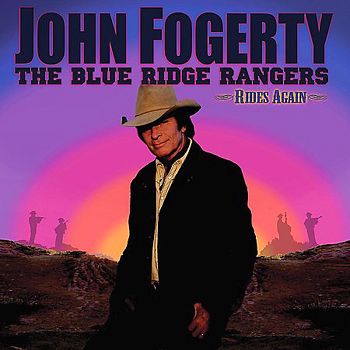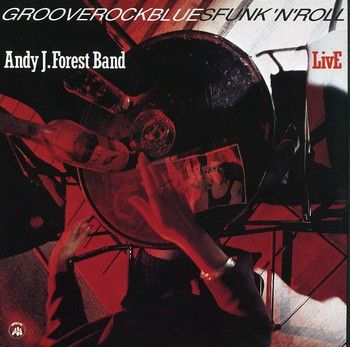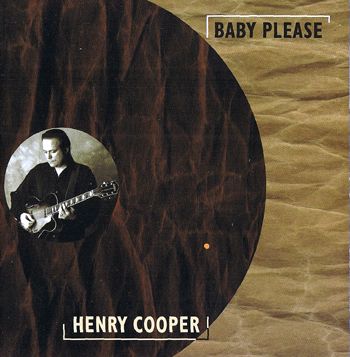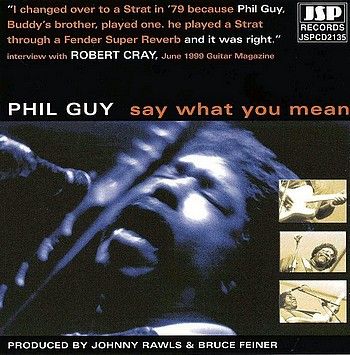
Phil Guy - Say What You Mean - 2000 - JSP
The late Phil Guy never reached the legendary status of his older brother Buddy, although many people regarded Phil and Buddy as equally talented. Phil was part of the Chicago blues scene from the late sixties until his death in 2008. During the ’70s, he was a member of both Buddy’s band and Junior Well’s band. He backed great blues artists like Albert Collins, Son Seals, Memphis Slim, Big Mama Thornton, Koko Taylor, and John Lee Hooker, and for many years he had his own great band, The Chicago Machine. "Say What You Mean" is a great Chicago Blues album from this sometimes forgotten bluesman. Check out his great "Bad Luck Boy" album.
TRACKS / COMPOSERS
1 Lonesome Blues Feiner, Rawls 7:18
2 Fixin' to Die Guy 8:04
3 Help Wanted Blues Feiner 7:07
4 Is It Him or Me? Feiner 5:15
5 I'm Leavin' Right Now Feiner 6:20
6 Last Time Guy 8:05
7 4 A.M. Blues Feiner 4:11
8 Say What You Mean Feiner, Rawls 4:01
9 Have Mercy Feiner, Rawls 7:00
10 Last of the Blues Singers Guy 6:08
11 You at My Door Feiner 5:38
MUSICIANS
Phil Guy Guitar, Vocals
Johnny Rawls Guitar
Mike Nunno Electric Bass
Marty Sammon Hammond
Reggie Barnes Drums
Bruce Feiner Tenor Saxophone [from The Nutmeg Horns]
Robert Feiner Baritone Saxophone [from The Nutmeg Horns]
Jamie Finegan Trumpet, Synthesizer Strings [from The Nutmeg Horns]
Burt Teague Shaker on Track 8
Alvin Carter Snr. Conga Drum on Track 8
SHORT BIO (Wikipedia)
Phil Guy (April 28, 1940, Lettsworth, Louisiana[1] - August 20, 2008, Chicago Heights, Illinois, was an American blues guitarist. He was the younger brother of Buddy Guy. Guy played with the harmonica player Raful Neal for ten years in the Baton Rouge, Louisiana area before relocating to Chicago in 1969. He played with Junior Wells in the 1970s, and recorded extensively under his own name in the 1980s and 1990s. Phil died of complications from pancreatic cancer on Wednesday, August 20, 2008.
MORE ABOUT PHIL GUY
Phil Guy didn't eclipse his older brother Buddy's status as a blues superstar, and in reality, Phil's funky brand of blues was not captured correctly for posterity. But he remained an active attraction on the Chicago circuit, following in his sibling's footsteps and patiently waiting for his own star to rise up until his death. Like his sibling, Phil Guy played with harpist Raful Neal (for a decade) before leaving the Baton Rouge scene for Chicago in 1969. There he played with his brother's high-energy organization as well as behind harpist Junior Wells (Phil handled guitar duties with Sammy Lawhorn on Wells' underrated mid-'70s Delmark album On Tap). Phil Guy cut albums of his own for JSP; they were generally lacking in originality if not spirit. Phil Guy lost his battle with liver and kidney cancer in August of 2008. © Bill Dahl, allmusic.com
DETAILED BIO
Born on April 28, 1940, Phil Guy was the fifth child and third son of his sharecropping parents, Sam and Isabell Guy. Along with his parents, sisters (Annie Mae and Fannie Mae), and brothers (Buddy and Sam, Jr.), Phil grew up picking cotton and pecans on the Lettsworth, Louisiana plantation – about 60 miles northwest of Baton Rouge. The Guys were very poor. They had no electricity or running water for most of Phil’s youth. Yet, the Guys were a proud family.When Phil was nine years old (and oldest brother Buddy thirteen) the family made enough profit from their crops to obtain electricity. Besides the one light bulb that lit up their home, their daddy splurged on a radio and an old phonograph. They were intrigued with the sounds of Muddy Waters, Jimmy Reed, Little Walter, Howlin Wolf and John Lee Hooker. Buddy started down the music road first with a guitar he made from screen wire and a lighter fluid can, and then progressed to a $2 guitar with two strings to eventually a Harmony f-hole guitar when he graduated from the eighth grade. Phil was not allowed to touch Buddy’s guitar. However, when Buddy moved to Baton Rouge to attend high school and live with Annie Mae, he left his old guitar hanging on a nail on the wall of their country shack. Completely left handed, thirteen year old Phil stared at it mesmerized. He took the guitar down and tried to figure out how to play it. Upside down and backwards didn’t work so he forced himself to play right handed. Soon he began taking the guitar out on the levee. His cousin Ervin Hartford would join him playing harmonica. Even though Phil’s influences were Lightnin’ Slim, Muddy Waters, John Lee Hooker and Albert Collins, he said, “I didn’t know but one song, just a rhythm line of a Jimmy Reed song.” The echo on the levee captivated him, and so he’d play that one line over and over. One weekend evening, when Phil was fifteen, musician Lightnin’ Slim stopped by Johnny McGlitcham’s Club in nearby Torres with his amplified guitar. Phil had never seen anything like it. Phil said, “Slim’s amp was the size of a radio. He said he was just going to play for a little while, but when people kept throwing money into the hat, Slim ended up staying for a week. It was Slim who gave me my first chance to play an electric guitar.” In the meantime in Baton Rouge, after years of listening to Muddy Waters, John Lee Hooker, Lightnin’ Hopkins, Howlin Wolf and B.B. King, Buddy joined harp player Raful Neal’s band. They performed at many of the local joints including the Dew Drop Inn and The Rock House Buddy yearned to see and learn from his idols, so on September 27, 1957 at 21 he moved to Chicago where they were. Before he left he told Raful that his younger seventeen year old brother could also play the blues. Phil cut his musical teeth in Raful Neal’s band replacing Lazy Lester as rhythm guitarist. “From then on, I just started learning more and more,” Phil said. He stayed with Raful’s band until Buddy summoned him to come to Chicago. Phil ventured north in April 1969 and began working immediately with Buddy in his bands. Often, they played in the basement at Theresa’s Lounge on 48th & Indiana. At that time, Phil’s (29) and Buddy’s (33) musical styles had gone different directions. Phil was more into funky songs by Jimmy Reed and James Brown. His method was a deep picking, penetrating and searing style like Albert King. Buddy’s approach was skilled Chicago blues like Muddy Waters, straight picking yet mixed with electrifying Guitar Slim style showmanship and powerful vocals. However, whenever these two blues brothers jammed together, their styles complimented each other exquisitely.Soon after his arrival in Chicago, Buddy invited Phil to join his band on a trip to Africa sponsored by the U.S. State Department. “The trip was a huge success,” Phil said. “The Africans had heard of James Brown and Muhammad Ali but knew nothing about the blues. They were so amazed with the music they thought Buddy’s strings were magic and stole them right off his guitar!” Following one performance in Africa, Phil put his guitar on top of the equipment truck. Driving miles and miles over the bumpy, pot hole laden roads, his Fender Telecaster fell off. When they finally realized what had happened 30 or 40 miles down the road, they backtracked and retrieved it. To this day Phil continues to play with his beloved guitar, "Ludella." The Guy blues brothers and Junior Wells had several high profile gigs in Europe, including opening for the Rolling Stones in 1970 and jamming with Eric Clapton. Buddy, Phil, and Junior Wells were much better known across the ocean than in our homeland where blues took root. A year after Woodstock and Altamont, in the summer of 1970 Buddy and Phil Guy joined a collection of future rock and roll superstars, including Janis Joplin, The Grateful Dead, The Band, and the Flying Burrito Brothers and others, on the infamous Festival Express. The Festival Express was a train that rock and rolled, jammed and partied, day and night across Canada – making concert stops in Toronto, Winnipeg and Calgary. It was a multi-band, multi-day extravaganza that captured the spirit and imagination of a generation and a nation. Long lost film, never seen before of the ride was found in the 1990’s and made into a documentary nearly 35 years later. Speaking of the rare footage of Phil and Buddy jamming on the train and performing in Winnipeg, Phil chuckled about his wild afro, beard and clothes recalling, “It was a great musical experience . . . I was a hippie back then.” Phil spent quite a few years as a backing musician. Besides playing with Buddy, Raful Neal, and Junior Wells, he backed up Son Seals, Albert Collins, Koko Taylor, Memphis Slim, John Lee Hooker and Big Mama Thornton. “Big Mama Thornton was wild! She was kind of like a female Junior Wells!” Phil explained. During the mid 1970’s and into the mid 1980’s disco, rock and roll, and pop were what audiences wanted to hear. There was no money in playing the blues. Phil needed to support his family, so he picked up whatever work he could. Occasionally, good things happened in the dry blues years. In 1979, Phil and Buddy were on tour in France. Out of the blue, promoter Didier Tricard asked Buddy if he wanted to record an album. Buddy thought it was a joke, but insisted that if he was serious, he would only record if the label was named after their mother, Isabell. From that, right in the middle of the disco craze came, Stone Crazy. Phil struck out on his own in the 1990’s and formed his band Phil Guy and The Chicago Machine. His albums include: Tina Nu (1994) JSP label, All Star Chicago Blues Session (1994), Breaking out on Top (1995), Chicago’s Hottest Blues Session, Vol. 25 (1998), Track 16 – A Selection of the Best Modern Blues (2000), and Say What You Mean (2000) – JSP label. *** 2006 Phil's newest CD "He's My Blues Brother" - Black Eyed Sally's Music label. Phil’s highly praised Say What You Mean CD showcases his exceptional penned lyrics in “Fixin to Die,” “For the last Time,”and “Last of the Blues Singers.” Coupled with Phil’s intense tone and soul vocals and mixed in with his emotion-filled guitar playing, his performances are Chicago savvy, his audiences always wanting more. Phil Guy has become one of Chicago’s most rock solid and legendary blues performers. Not afraid to tackle anything or any genre, he mixes his performances with R& B, rock-and-roll - and hip-hop - entertaining people of all ages. Phil acknowledges that “the 1990’s are gone, and now in the 2000’s, everybody’s back on the floor dancing.” Phil Guy is always ready to boogie and give the people what they want – whether it’s some down home Louisiana blues, Sweet Home Chicago Blues, Funky James Brown tunes, Rolling Stones “Missing You,” or today’s hip-hop – Phil delivers more than what audiences expect. “Fun” should be his middle name. Unfortuneately Phil was diagnosed in January of 2008 with stage 4 prostate cancer, which means it had already spread into different areas of his body. Prior to his diagnosis he had no symptoms, other than being tired. Phil lived on and survived this devastating disease until August 20th, when it just took him. He lived life fully this past year as he had all his 68 years. He was a remarkable man. In his last days he asked God to have mercy on his soul. He's up in heaven now with God and all the musicians that passed before him - reflective in his song - Last of the Blues Singers. © www.philguynothrmule.com


